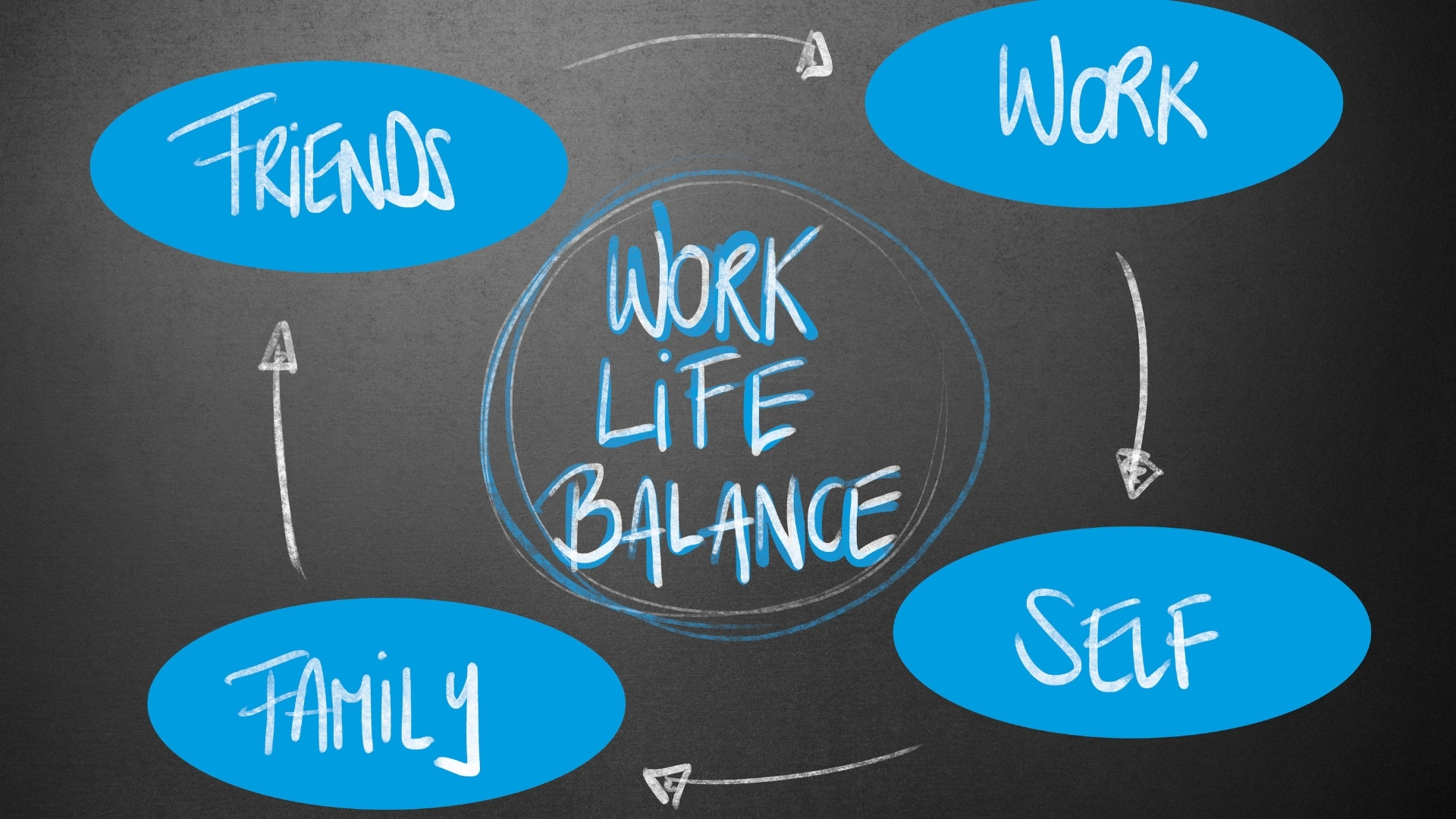Striking a balance between work and personal life is crucial for overall well-being. In today’s fast-paced world, achieving work-life balance can seem challenging, but with the right strategies and mindset, it is possible to prioritize both career success and personal happiness.
So, whether you’re a seasoned professional juggling multiple responsibilities or just starting out in your career, this guide is for you. Let’s dive into practical tips on setting boundaries, managing your time effectively, prioritizing self-care, and building a supportive network.
Remember, achieving work-life balance is a journey, not a destination. With the right mindset and these helpful strategies, you can create a life that feels truly balanced and satisfying.
Let’s explore some effective tips and techniques to help you achieve a harmonious equilibrium between your professional and personal life.

Juggling a Full Plate: Your Guide to Achieving Work-Life Balance
Do you ever feel like you’re constantly spinning plates – trying to balance demanding work deadlines with fulfilling personal commitments and, well, just having a life outside of the office?
You’re not alone. In today’s fast-paced world, achieving and maintaining a healthy work-life balance feels more like a high-wire act than a walk in the park.
But fear not, fellow multitasker! This guide is here to equip you with the tools and strategies you need to thrive in both your professional and personal spheres.
This isn’t just about squeezing in more “me-time” at the end of a long day (although that’s important too!). It’s about cultivating a holistic approach to your well-being, one that empowers you to be productive, engaged, and fulfilled in all aspects of your life.
Tips to Achieve and Maintain a Good Work Life Balance
Achieving and maintaining a good work-life balance is crucial for overall well-being and productivity. Here are some tips to help you find yours:
Setting Boundaries:
- Define work hours: Establish clear start and finish times for your workday, and stick to them as much as possible. Communicate these hours to colleagues and avoid checking work emails or calls outside them.
- Separate work and personal space: If possible, have a dedicated workspace and avoid working from your bed or couch. This helps signal to your brain when it’s time to switch gears.
- Use separate devices: Consider having a separate phone or computer for work, or use different browsers or filters for work and personal accounts. This minimizes temptation to check work outside of hours.
Time Management:
- Prioritize ruthlessly: Identify the most important tasks at work and focus on completing them first. Learn to say “no” to additional tasks that don’t align with your priorities.
- Plan your day: Schedule time for both work and personal activities, including breaks and relaxation. Allocate realistic timeframes for tasks to avoid feeling overwhelmed.
- Utilize productivity tools: Utilize apps or techniques like timeboxing, the Pomodoro Technique, or batching similar tasks to maximize your efficiency and minimize distractions.
Taking Breaks and Recharging:
- Schedule breaks: Take regular short breaks throughout the day to move around, stretch, or simply step away from your screen. This helps prevent mental fatigue and improves focus.
- Disconnect and recharge: Dedicate time each day to activities you enjoy outside of work, like hobbies, spending time with loved ones, or pursuing personal interests.
- Prioritize sleep: Getting enough quality sleep is essential for both physical and mental health. Aim for 7-8 hours of sleep per night.
Additional Tips:
- Communicate your needs: If your work demands are causing an imbalance, talk to your manager about flexible work arrangements, delegating tasks, or adjusting deadlines.
- Seek support: Don’t be afraid to ask for help from colleagues, friends, or family members when needed. Sharing your struggles can provide valuable support and perspective.
- Remember, it’s a journey: Achieving work-life balance is an ongoing process. Be patient, experiment with different strategies, and adjust as needed to find what works best for you.
Remember, a good work-life balance looks different for everyone. The key is to find what allows you to be productive and fulfilled in both your professional and personal life. I hope these tips help you on your journey!

Cultivating a Healthy Mindset
Beyond practical strategies, fostering a healthy mindset is key to achieving and maintaining work-life balance. Here are some tips:
- Practice gratitude: Take time each day to appreciate the positive aspects of both your work and personal life. Gratitude can shift your perspective and boost overall well-being.
- Embrace imperfection: Striving for perfection in both work and personal life is a recipe for stress and burnout. Accept that mistakes happen and focus on progress over perfection.
- Challenge negative self-talk: Be mindful of self-critical thoughts and replace them with positive affirmations. Remember, you are capable and worthy of success in both areas of your life.
- Develop resilience: Learn from setbacks and challenges, and use them as opportunities to grow. A resilient mindset helps you bounce back from difficulties and maintain work-life balance in the long run.
- Disconnect to reconnect: In today’s digital age, constant connectivity can blur the lines between work and personal life. Take regular breaks from technology to connect with yourself and your surroundings.
Building a Supportive Network
Achieving work-life balance isn’t always a solo endeavor. Building a supportive network can provide invaluable encouragement and practical help:
- Talk to your manager: Discuss your work-life balance goals with your manager and explore options for flexible work arrangements or workload adjustments.
- Connect with colleagues: Build relationships with colleagues who understand and respect your need for balance. Share experiences and offer support to each other.
- Seek professional help: If you’re struggling to manage stress or find balance, consider seeking guidance from a therapist or counselor. They can provide tools and strategies for managing your well-being.
- Lean on your loved ones: Share your struggles and successes with your family and friends. Their love and support can be a powerful source of strength and motivation.
- Join communities: Connect with online communities or support groups focused on work-life balance. Sharing experiences and learning from others can be incredibly helpful.
Remember, finding work-life balance is a continuous process. By incorporating these tips and building a strong support system, you can create a more fulfilling and sustainable life, both personally and professionally.
FAQ: Your Guide to Work-Life Balance
Q1: What if my job doesn’t offer flexible work arrangements?
A: Even without formal policies, there are ways to advocate for yourself. Talk to your manager about your needs and explore options like adjusted start/finish times, remote work days, or workload adjustments. Highlighting the potential benefits for productivity and well-being can strengthen your case.
Q2: I feel guilty saying “no” to extra work.
A: Remember, prioritizing your well-being isn’t selfish. By setting boundaries, you’re ensuring you have the energy and focus to perform at your best. Practice saying “no” assertively, explain your reasons, and offer alternative solutions if possible.
Q3: How can I manage work-life balance with family commitments?
A: Communication and collaboration are key. Discuss expectations with your family and involve them in creating a schedule that works for everyone. Delegate tasks, utilize childcare support if needed, and prioritize quality time together, even if it’s just for short bursts.
Q4: What if I constantly feel overwhelmed and stressed?
A: Don’t ignore these signs. Seek help from your manager, HR, or a mental health professional. Consider stress management techniques like meditation, yoga, or mindfulness exercises. Remember, prioritizing your mental well-being is essential for achieving overall work-life balance.
Q5: How can I stay motivated to maintain this balance?
A: Track your progress and celebrate small wins. Reward yourself for sticking to boundaries or completing personal goals. Connect with others who share similar challenges and offer support to each other. Remember, achieving balance is a journey, not a destination. Be patient and kind to yourself.
Q6: Are there any resources or tools you recommend?
A: Yes! There are numerous apps, websites, and books dedicated to work-life balance. Explore time management tools, mindfulness apps, or productivity trackers. Consider joining online communities or support groups focused on achieving balance.
Remember, this FAQ is just a starting point. As you navigate your own work-life journey, don’t hesitate to seek additional resources and support tailored to your specific needs and situation.
Read More:
- Beyond the Resume: 100 Best Talent Examples to Enhance Your Life and Career
- Top Tips for Career Changers: 5 Proven Strategies in 2024
- What Motivates People for Changing Careers After 30
Finding Your Rhythm: A Final Note on Work-Life Balance
Remember, achieving work-life balance isn’t about achieving a perfect 50/50 split between work and personal life. It’s about creating a rhythm that works for you, one that allows you to be your best self in both your professional and personal spheres.
This journey may involve some experimentation and adjustments along the way. Be patient, be kind to yourself, and celebrate your progress, no matter how small. The key is to find what allows you to feel fulfilled, energized, and present in each moment.
So, take a deep breath, put down that extra plate (for now!), and start implementing the strategies that resonate with you. Remember, you have the power to create a life that feels balanced, meaningful, and truly yours. Now go out there and live it!
And beyond the tips offered here, remember that the most important ingredient in achieving work-life balance is YOU. You are the expert on your own needs and priorities. Listen to your inner voice, trust your instincts, and don’t be afraid to advocate for what you need.
With dedication and a willingness to explore, you can find your unique work-life rhythm and live a life that feels truly enriching and fulfilling.
Obrigado, há muito tempo que procuro informações sobre este assunto e a sua é a melhor que descobri até agora. Mas e em relação aos resultados financeiros Você tem certeza em relação ao fornecimento
Hi Lesley Doloremque,
Thank you for your kind words! I’m glad to hear that you found the information helpful. Regarding the financial results, I can assure you that the data provided is accurate and reliable.
Additionally, if you’re preparing for job interviews, you might find [jobinterviewtips.in](https://jobinterviewtips.in/) to be a valuable resource. It offers practical advice and strategies to help you succeed.
Best regards,
jobinterviewtips.in